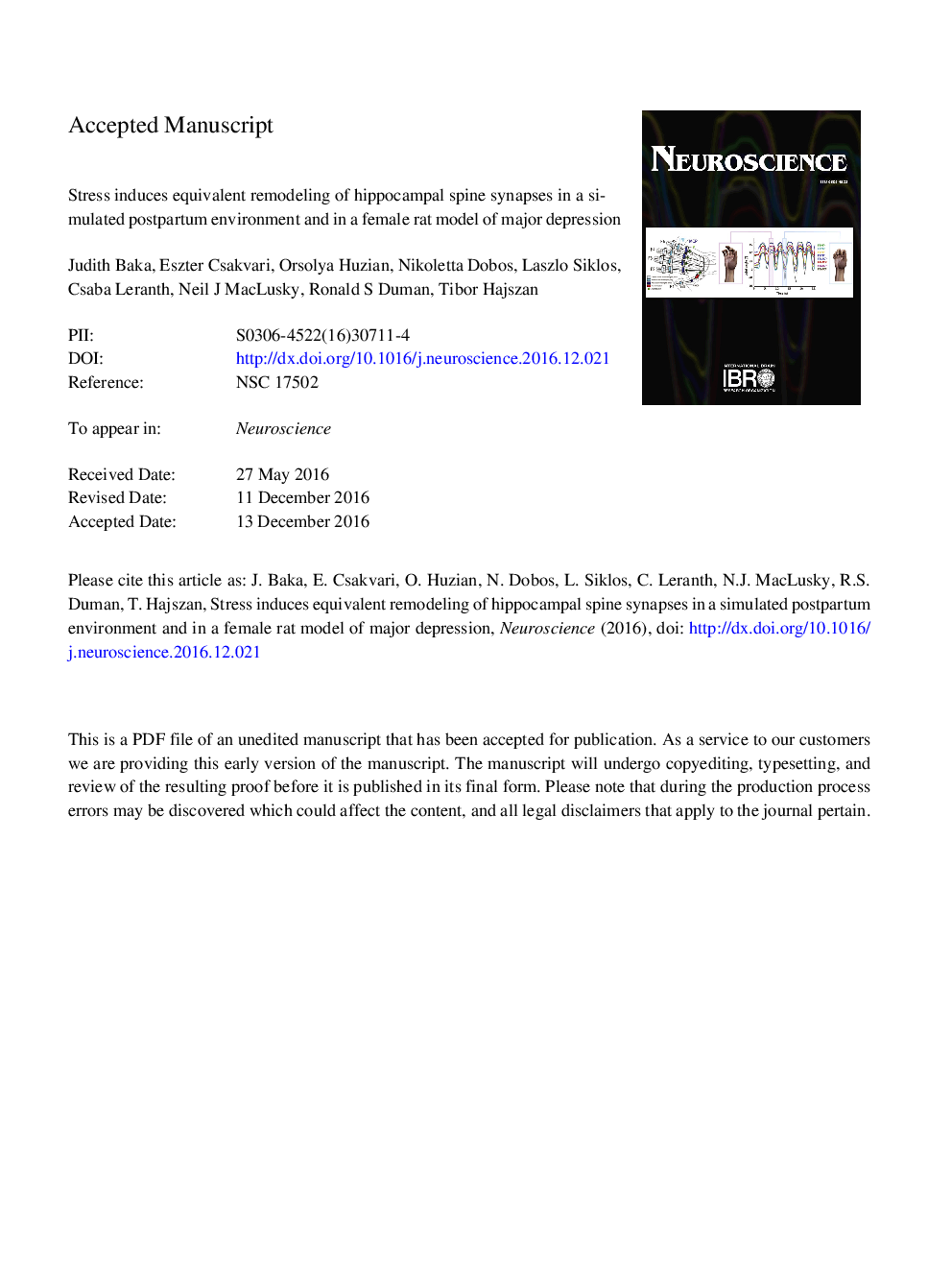ترجمه فارسی عنوان مقاله
استرس موجب ایجاد مجدد معکوس سیناپس های ستون فقرات هیپوکامپ در یک محیط شبیه سازی شده پس از زایمان و در مدل موش های ماده افسردگی می شود
عنوان انگلیسی
Stress induces equivalent remodeling of hippocampal spine synapses in a simulated postpartum environment and in a female rat model of major depression
| کد مقاله | سال انتشار | تعداد صفحات مقاله انگلیسی |
|---|---|---|
| 124591 | 2017 | 41 صفحه PDF |
منبع

Publisher : Elsevier - Science Direct (الزویر - ساینس دایرکت)
Journal : Neuroscience, Volume 343, 20 February 2017, Pages 384-397

